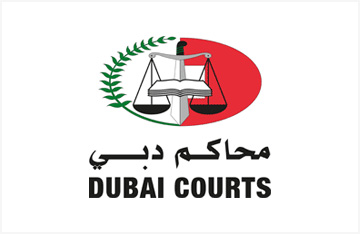UAE convictions and tracking Boko Haram finances
Penultimate Monday, this newspaper reported that six Nigerians were sentenced to various prison terms ranging from 10 years to life imprisonment after a Federal Appeals Court in the United Arab Emirates (UAE) upheld their convictions for funding the terrorist group, Boko Haram. The six, who were arrested in 2017, were initially tried and convicted last […]

Penultimate Monday, this newspaper reported that six Nigerians were sentenced to various prison terms ranging from 10 years to life imprisonment after a Federal Appeals Court in the United Arab Emirates (UAE) upheld their convictions for funding the terrorist group, Boko Haram.
The six, who were arrested in 2017, were initially tried and convicted last year.
- Strange Disease: FG Urges Investigation Into ‘50 Deaths’ In Kogi
- IBB, Abdulsalami Back North Central People’s Forum
The Abu Dhabi Appeals Court sentenced Surajo Abubakar Muhammad and Saleh Yusuf Adamu to life in prison while Ibrahim Ali Alhassan, AbdurRahman Ado Musa, Bashir Ali Yusuf and Muhammad Ibrahim Isa each received a 10-year sentence.
According to the records of the judgment, between 2015 and 2016, the convicts allegedly used Bureau de Change operations to send $782,000 to the benefit of Boko Haram, in 17 separate transfers from Dubai to Nigeria. But the convicts defended their actions, saying there was nothing criminal about the transactions. Their families also insisted that they were not given fair hearing. They said the convicts were tortured into confessing to the alleged crime.
The convictions elicited reactions from Nigerians with Senator Opeyemi Bamidele, chairman of the Senate Committee on Judiciary, Human Rights and Legal Matters, saying his Committee will open investigations into the trial. This, the senator said, is because until last week’s reaffirmation by the Appeal Court, the Committee was unaware of the arrest and imprisonment of the six persons.
Governor of Borno State, Babagana Umara Zulum, expressed joy that for the first time in 11 years, there appears to be headway on tracking alleged financiers of Boko Haram’s activities, which has killed tens of thousands of people, uprooted millions, damaged local economies and destroyed private property and public institutions worth $9 billion in the North-east region.
The insurgency has also destroyed cross-border trade in the Lake Chad nations of Nigeria, Cameroon, Chad, and Niger.
Governor Zulum, in a statement by his spokesperson, Malam Isa Gusau, urged the federal government to consider setting up a multi-stakeholder team with trusted representatives from the Federal Ministries of Justice, Foreign Affairs, the National Intelligence Agency (NIA), Defence Intelligence Agency (DIA), the Multinational Joint Task Force in the Lake Chad, and the ECOWAS Intergovernmental Action Group on Terrorism Financing in West Africa, GIABA, “to assiduously work with the UAE government to follow-up on the findings by the UAE with the hope of using the intelligence, if authenticated, to expand search on other Boko Haram sponsors that may be helping in similar ways.
The governor, also in October this year, declared two days of state-wide fasting and prayers against Boko Haram, and for God to expose all their sponsors and anyone who knowingly benefits from the crisis at the expense of peace in the State.
The arrest and conviction of the six in UAE opens a vista for the federal government to tackle terrorism financing as a way to dismantle the Boko Haram/Islamic State in West Africa Province (ISWAP) terrorism network.
There is need for the Nigerian government to fast track cooperation with other nations on this matter. This is because the convicts cannot be the only source through which the Boko Haram gets funds for its activities.
The 22nd report of the United Nations Analytical Support and Sanctions Monitoring Team identified charitable donations, extortion, smuggling and ransom remittances from kidnapping as ways groups like Boko Haram/ISWAP raise funds.
It behoves the federal government to work with other countries to block sources of funds for the terrorists.
The Nigerian Financial Intelligence Unit (NFIU) should rise up to the occasion and be vigilant. Modern technologies have made tracking of cross border financing easier. So, as a way of stifling the operations of the insurgency groups, the source of their financing must be cut. And the time is now.
